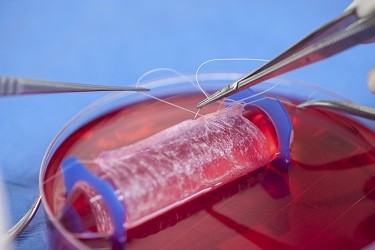
For the first time ever, researchers have implanted laboratory-grown vaginal organ into human patients, thus potentially helping women avoid problems from other regenerative procedures.
The vagina couldn't form properly among these women, when they were still inside their mother's womb, a condition called as vaginal aplasia.
However, Dr Anthony Atala along with doctors at the Wake Forest Baptist Medical Centre in North Carolina with the use of new technology built vaginas for four teenage women.
A tissue sample along with a biodegradable scaffold was used to grow vaginas in the right shape and size for each woman. The vaginas were grown in a bioreactor until they reached a suitable condition to be surgically implanted into the patients.
Atala and his team created vaginal organ using epithelial and muscle cells, which were taken from the patient's external genitals.
After the surgery, females reported of positive results and could have normal sexual function including desire, orgasm and pain-free intercourse.
An absent or underdeveloped vagina is linked to number of health problems varying from congenital syndromes such as Mayer-Rokitansky-Küster-Hauster (MRKH) to cancers and injuries.
Present treatments involve creating a surgical cavity, which is lined with skin grafts or intestinal parts.
"I believe in the beginning when you find out you feel different. I mean while you are living the process, you are seeing the possibilities you have and all the changes you'll go through. Truly I feel very fortunate because I have a normal life, completely normal." BBC News quoted one of the women with an implanted vagina.
MRKH is a rare condition, affecting about 1 out of every 4,500 newborn girls.
"It's a start creating something that's less invasive. Anything that's going to heal quicker and result in fewer complications is a good step forward." Newsweek quoted Amy C. Lossie, president and CEO of the Beautiful You MRKH Foundation.
The details of the study were published in the Lancet journal.
(Edited by Vanilla Sharma)

















